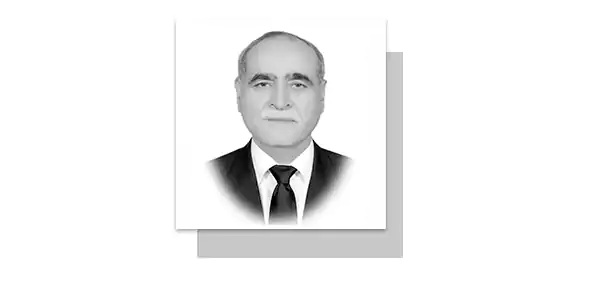THE second National Security Workshop on Kashmir was held in Muzaffarabad, the capital of Azad Jammu and Kashmir, under the auspices of the 10 Corps Headquarters in collaboration with the Kashmir Institute of Management. Esteemed speakers included former President of Azad Jammu and Kashmir, Sardar Muhammad Masood Khan, renowned diplomat Dr. Maleeha Lodhi, distinguished intellectual Dr. Maqsood Jafri, Human Rights activist and the wife of APHC leader Yasin Malik, Mashaal Malik, defence experts Lieutenant General Shahid Imtiaz, General Officer Commanding Murree, Major General Muhammad Irfan, Brigadier Qaiser Iqbal and Brigadier Amir graced the workshop with their presence and insightful talks on various dimensions of national security.
The workshop showcased exemplary organization by Kashmir Institute of Management (KIM) team, led by Brigadier Akhtar Gardezi and Director KIM Tariq Butt. ISPR official were also in loop and coordination. Pakistan’s national security is deeply intertwined with its unique circumstances, particularly the Kashmir issue. To ensure national security, Pakistan considers the following essential points: Protection of Sovereignty: Defending its territorial integrity, especially in Kashmir, which is a highly disputed region. Internal Stability: Maintaining law and order within its borders, including Azad Jammu and Kashmir, to prevent internal conflicts and external interference, Economic Security: Strengthening its economy to reduce dependence on external aid and enhance its global influence, Military Strength: Preserving a robust military to deter potential threats from neighboring countries, particularly India, Diplomatic Relations: Nurturing strategic alliances, especially with China, to counterbalance India’s influence in the region, Ideological Identity: Safeguarding its Islamic ideology, which plays a significant role in shaping its national identity and foreign policy, Kashmiri Self-Determination: Supporting the right to self-determination for the Kashmiri people, as enshrined in UN resolutions, and Regional Cooperation: Collaborating with neighboring countries to address shared security concerns, such as terrorism and border disputes.
In Pakistan’s context, the military plays a vital role in ensuring national security, particularly in Kashmir. The army is seen as the protector and supporter of the Kashmiri people in Azad Jammu and Kashmir, upholding Pakistan’s ideological identity and commitment to freedom and self-determination. The moot featured a series of informative and thought-provoking presentations, engaged in deep discussions during the extensive Q&A sessions, enriching the intellectual environment of the workshop. The participants of the security moot visited AJK Legislative Assembly and AJK University where Speaker Legislative Assembly Chaudhry Latif Akbar and Vice Chancellor Prof Dr Kaleem Abbasi respectively briefed the participants about both the esteemed institutions. Masood Mir, Managing Director Power Development Organization also briefed the participants about the organization.
Sardar Masood Khan shared his vast international experience as a diplomat, offering valuable insights into the Kashmir issue, addressing both international opportunities and challenges. Dr. Maleeha Lodhi’s unwavering commitment to Kashmir was evident. Her speeches resonated with passion and clarity. Mashaal Malik, poignantly expressed the personal toll of her husband’s imprisonment due to Indian repression, conveying the pain of a mother and wife with profound emotion. She detailed the indifference of the international community toward India’s actions but remained hopeful for her husband’s cause. This four-day security moot was a significant achievement, fostering constructive dialogue about the Kashmir conflict and enhancing understanding of the relationship between Pakistan and the Kashmiri people.
The discussions encompassed themes of solidarity, mutual concerns and the key security challenges faced by Pakistan. Lt General Shahid Imtiaz, while addressing the concluding session, emphasized the ideological and intellectual unity of Pakistan and Kashmir, positioning him as more of an intellectual philosopher than a mere military figure. His eloquent use of language captivated the audience, making his three-hour address feel brief and engaging. Major General Irfan also enriched the participants with his thoughtful insights and engaging delivery. The conference majorly revolves around the core issue of Kashmir, vital to the regional stability, reaffirming the right of Kashmiris to self-determination duly acknowledged by the UN. The Kashmir dispute remains a national security priority for Pakistan. The country will steadfastly support the Kashmiri struggle for self-determination, affirming that Kashmir is not merely a territorial conflict but fundamentally about the future of its people. Pakistan cannot compromise on its principled stance regarding Kashmir, and the relationship between the Pakistani military and the Kashmiri people is built on mutual affection and respect.
While India’s strategic goals include regional dominance and control over water resources, Pakistan must enhance its military capabilities and diplomatic efforts in response. A path forward requires sustained diplomatic initiatives, national unity and resilience. As articulated by Quaid-i-Azam at Pakistan’s inception, the relationship between Pakistan and India was envisioned to be amicable, akin to that of Canada and the United States. However, following India’s military intervention in Kashmir in 1947, Pakistan responded decisively. The ongoing conflict, rooted in the quest for Kashmiris’ self-determination, underscores the enduring commitment of Pakistan to advocate for their rights on all fronts—politically, morally and diplomatically.
—The writer is a Supreme Court lawyer and former member & Chairman Standing Committee of Azad Jammu and Kashmir Council. Islamabad










